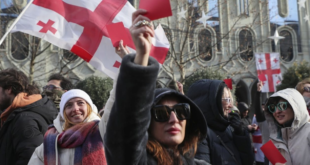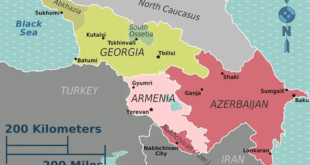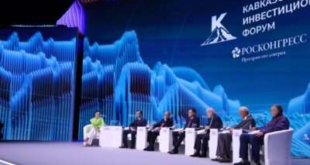 US President George W. Bush, fresh from declaring Russia’s offensive in Georgia “completely unacceptable,” was to map out a response Saturday in talks with his top national security aides.Bush was to hear US Secretary of State Condoleezza Rice’s report on her mission to the battered former Soviet republic and to France, which brokered a ceasefire, in talks on his Texas ranch near the tiny town of Crawford.
US President George W. Bush, fresh from declaring Russia’s offensive in Georgia “completely unacceptable,” was to map out a response Saturday in talks with his top national security aides.Bush was to hear US Secretary of State Condoleezza Rice’s report on her mission to the battered former Soviet republic and to France, which brokered a ceasefire, in talks on his Texas ranch near the tiny town of Crawford.
Â
The president and Rice, joined by US Defense Secretary Robert Gates and White House National Security Adviser Stephen Hadley by secure videoconference, were to take stock of the nearly two-week old crisis.
Â
Bush, who denounced Russia’s actions in two separate statements on Friday, was to make public remarks after the meeting, which US Vice President Dick Cheney was expected to join from his home in Wyoming, aides said.
Â
In a display of his administration’s determination to protect Georgia’s sovereignty, he announced that Rice will travel next week to Brussels, where she will meet with the foreign ministers of NATO allies and EU officials in an effort to shore up support for embattled Georgia.
Â
“The world has watched with alarm as Russia invaded a sovereign neighboring state and threatened a democratic government elected by its people. This act is completely unacceptable to the free nations of the world,” Bush said in his weekly radio address, which runs Saturday but was released on Friday.
Â
“And it is essential that America and other free nations ensure that an embattled democracy seeking to stand with us remains sovereign, secure, and undivided,” he told any Americans doubtful of Georgia’s importance.
Â
Bush and top aides have repeatedly denounced what they have described as Russia’s disproportionate response to Georgian strikes on separatists in the breakaway region of South Ossetia, but have not specified US reprisals.
Â
“Bullying and intimidation are not acceptable ways to conduct foreign policy in the 21st century,” the US president scolded Moscow in a brief statement before leaving the White House for his adoptive home state.
Â
Despite Georgia signing a French-brokered ceasefire deal, Russian troops dug in close to the Georgian capital Saturday, showing no sign of preparing to withdraw.
Â
Russian troops, backed by tanks and armoured personnel carriers, were seen on the main road from South Ossetia to Tbilisi, just 30 kilometres (18 miles) from the Georgian capital.
Â
Troops also remained in control of the main checkpoint into Gori, 60 kilometres northwest of Tbilisi.
Â
Bush has said Russia has put its post-Cold War economic, diplomatic and security embrace by the West “at risk.” Gates has warned that a Russian refusal to pull back would sour Russo-US relations “for years to come.”
Â
“To begin to repair the damage to its relations with the United States, Europe, and other nations, and to begin restoring its place in the world, Russia must act to end this crisis,” the president said in his radio address.
Â
But thus far Washington has not spelled out precise moves for what would be an effort to force Russia to withdraw its forces as well as a signal to other former Soviet republics that the United States will safeguard their future.
Â
“Cooperation on a wide range of issues going forward depends on the actions that Russia takes,” US National Security Council spokesman Gordon Johndroe told reporters traveling to Texas with Bush.
Â
But Johndroe declined to spell out specific reprisals, repeatedly insisting that “there will be a time and a place to deal with what the repercussions of all this is.”
Â
Bush on Friday also took pains to emphasize “the Cold War is over” and that “a contentious relationship with Russia is not in America’s interest. And a contentious relationship with America is not in Russia’s interest.”
Â
Still, US officials say, Washington is considering a wide range of steps, including symbolic moves like limiting US participation in the 2014 Olympics in Russia, economic moves like denying Russia its much-sought-for entry into the World Trade Organization, and security steps like curbing Russia-NATO cooperation.
Â
Another possibility would be downgrading Moscow’s partnership with the G7 Group of Seven industrialized democracies — called the G8 when Russia attends.
Â
At the same time, Russia’s oil wealth, its US-sought help on issues like counter-terrorism, defusing the nuclear crises with Iran and North Korea, and working towards Middle East peace, given Moscow powerful leverage.
Source: Agencies
Kavkaz Center
 Eurasia Press & News
Eurasia Press & News



